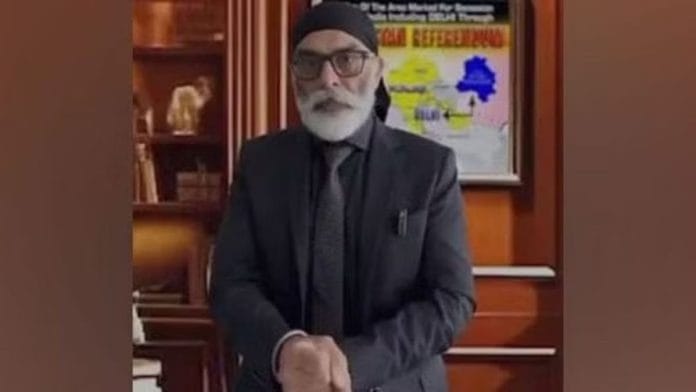New Delhi: The lawyers for Nikhil Gupta, accused of organising a hitman to assassinate lawyer and Sikh separatist leader Gurpatwant Singh Pannun, are scheduled to meet with prosecutors Thursday for a pre-trial meeting, known as a ‘status conference’, to exchange evidence and, potentially, begin a closed-door discussion on a plea bargain that could see the accused admit guilt of a lesser crime in return for a reduced sentence.
The ‘status conference’ comes amidst a bitter diplomatic showdown between India and Canada over the murder of another separatist and an associate of Pannun, Hardeep Singh Nijjar, who was murdered in June, 2023.
Four men alleged to be linked to the Lawrence Bishnoi gang are facing trial for Nijjar’s murder, which Canada has alleged had links to the Indian government.
New York prosecutors have alleged that Gupta, a New Delhi-based businessman, attempted to hire a hitman on behalf of an Indian government officer, identified in media reports as Research and Analysis Wing senior field officer Vikram Yadav.
The criminal indictment filed by prosecutors alleges that the hitman Gupta thought he had recruited was, in fact, an informant for the United States Drug Enforcement Agency, working under the supervision of an undercover officer. The indictment also includes the text of messages exchanged between Gupta, Yadav and the DEA informant. The exchanges refer to Nijjar killing, raising the possibility the two cases might be linked.
“When it comes to the Canadian matter, we have made clear that the allegations are extremely serious, and they need to be taken seriously,” US State Department spokesperson Matthew Miller said Wednesday. “We wanted to see the Government of India cooperate with Canada in its investigation. Obviously, they have not; they have chosen an alternate path.”
According to media reports, the ‘status conference’ was scheduled to be held last month, but was deferred after both the prosecution and defence agreed that more time was needed for the production and review of discovery—the process of sharing all evidence—so both sides can prepare for trial.
Although Gupta is expected to be present in court, he will not be allowed to attend the ‘status conference’, which is designed as an off-the-record discussion between the prosecution and defence lawyers.
The discovery process in Gupta’s case is complicated by the Classified Information Procedures Act, which requires the trial court to “protect against the disclosure of any classified information disclosed by the United States to any defendant in any criminal case”. Earlier this month, the trial court had issued a protective order to ensure the proper handling of classified intelligence material.
Victor Marrero, the judge hearing the case, will determine if any classified information prosecutors seek to withhold could compromise Gupta’s right to a fair trial. If so, the prosecution may decide to amend or withdraw charges.
“The actual trial could still be many weeks or even months away, depending on how much material needs to be studied during the discovery process and what classified material is involved”, a legal source familiar with national security cases in the United States told ThePrint.
Gupta, father of two and a resident of a middle-class neighbourhood in Delhi, originally hails from Uttarakhand’s Pauri Garhwal region. He was arrested in the Czech Republic, which he claims to have travelled to on vacation, and then extradited to the United States after a months-long legal battle.
Pannun has also filed separate civil proceedings seeking damages against the Government of India, National Security Adviser Ajit Doval, former Research and Analysis Wing chief Samant Goel, Yadav and Gupta.
Although notices have been issued in the case, it remains unclear what its potential outcome might be. The Foreign Sovereign Immunities Act authorises United States courts, according to the Congressional Research Service, to order damages for terrorism victims. However, these damages can only be claimed against designated state sponsors of terrorism, which are Iran, North Korea, Cuba and Syria, and previously Libya, Iraq and Sudan.
This is an updated version of the report
(Edited by Mannat Chugh)






